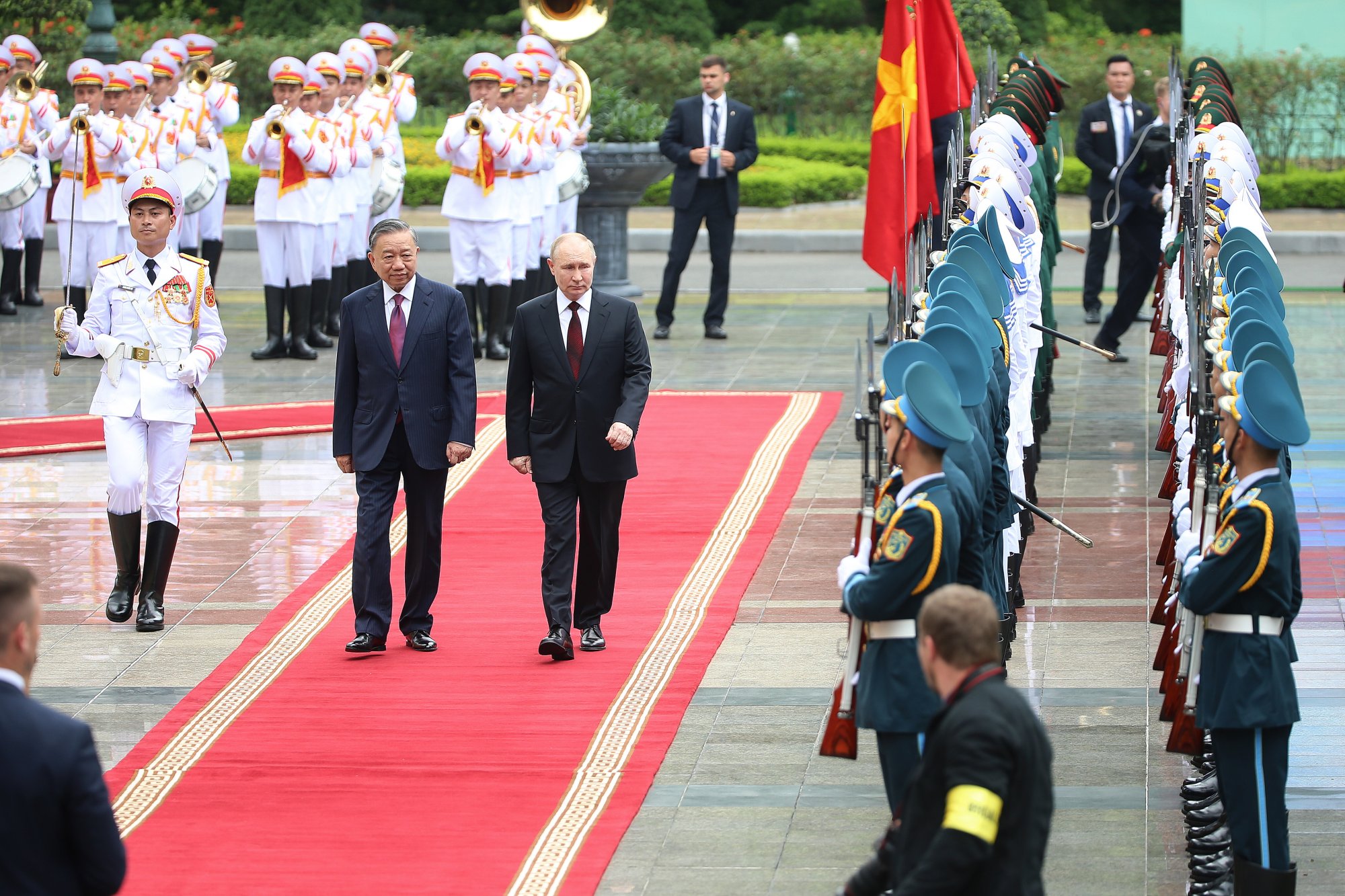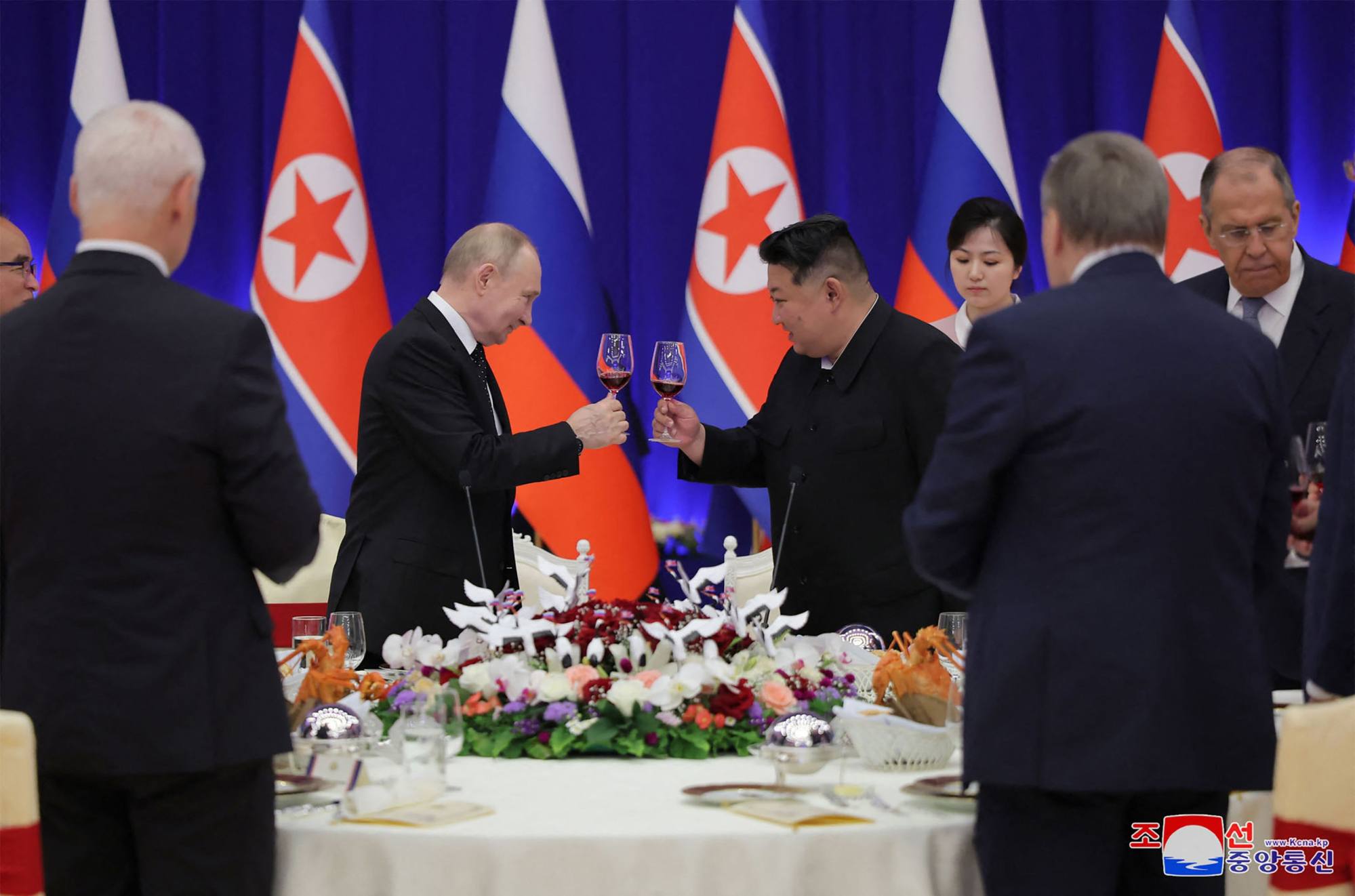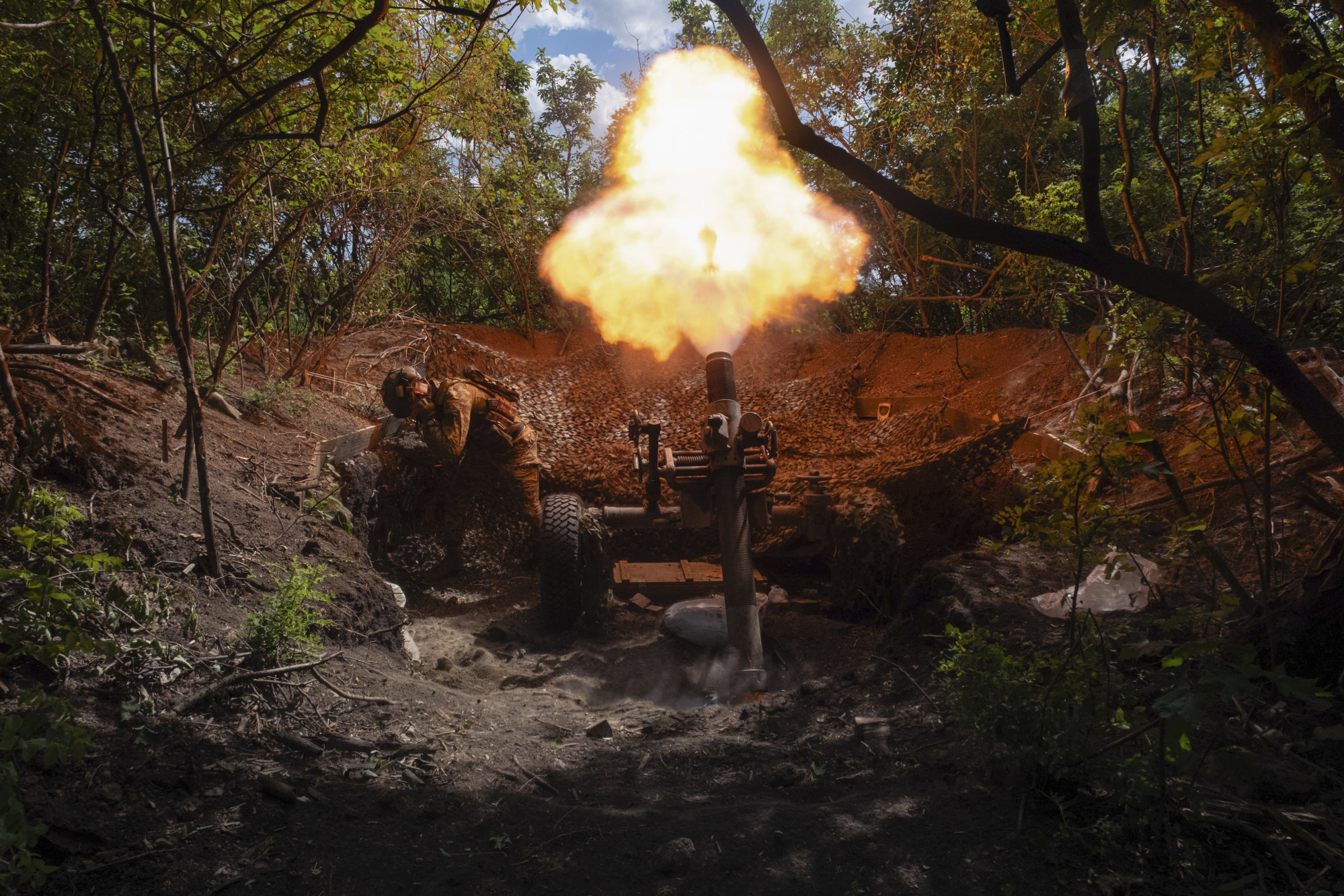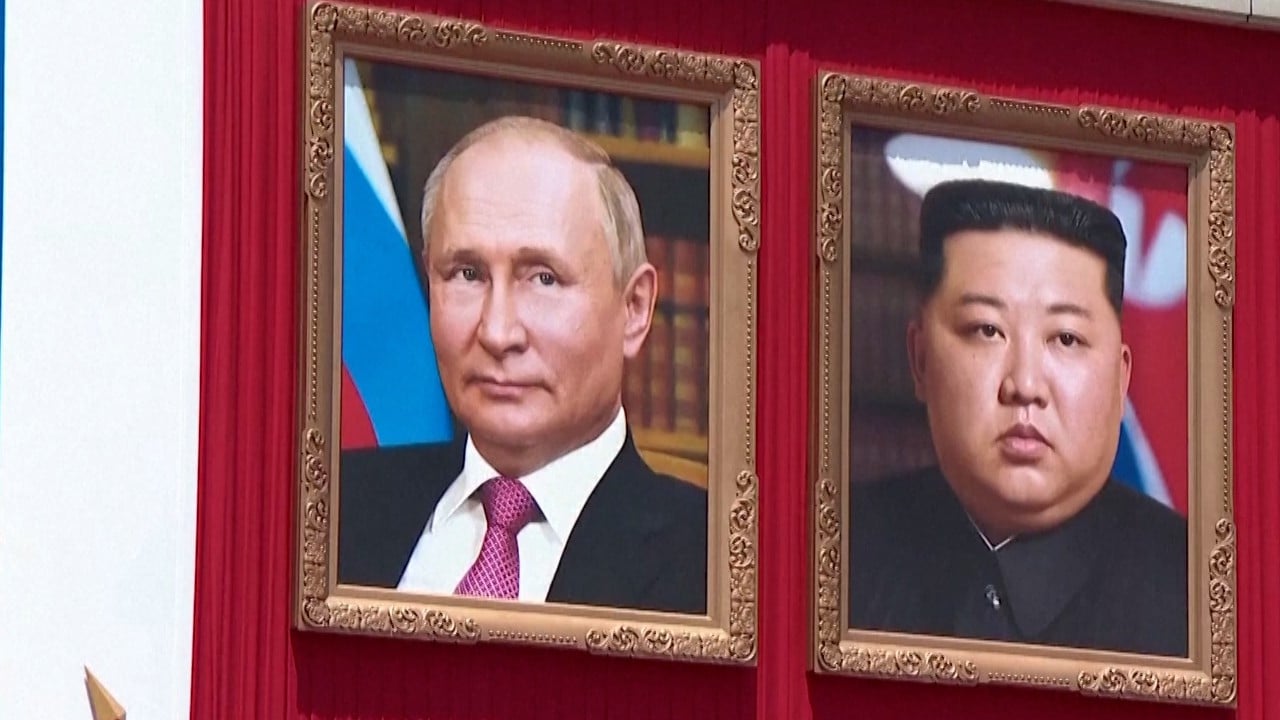“While the demands of the war in Ukraine must be met first, Russia appears motivated to retain its traditional customers in these difficult times by offering long-term contracts,” said Carl Thayer, an emeritus professor at the University of New South Wales and specialist on Vietnamese defence issues.
“Russia appears willing to sell if the price is right or exchange military hardware for goods, that is, counter trade,” he added.

Russia, traditionally one of the world’s top weapons exporters, has seen its market share plummet since it began its invasion of Ukraine in February 2022. Arms exports dropped 53 per cent between 2019 and 2023, according to the Stockholm International Peace Research Institute (SIPRI), as the needs of the Russian military took priority.
“My understanding is that Russia has already on multiple occasions taken products intended for export and directed them toward Ukrainian battlefields,” said Chris Miller, a professor at the Fletcher School of Law and Diplomacy at Tufts University in Massachusetts and author of the 2022 bestselling book Chip War: The Fight for the World’s Most Critical Technology.
Russia’s arms exports have continued even as it hunts for ammunition overseas. According to SIPRI, Russia had received orders for 78 combat aircraft, as well as five warships, at least 16 surface-to-air missile systems and 464 tanks at the end of 2023. India, China and Egypt are its largest clients.
Zachary Abuza, a professor of national security strategy with a focus on Southeast Asia at the National War College in Washington, told This Week in Asia that Russia was comfortable parting with some military equipment even as it scrambled to find other armaments abroad.
“It’s the difference in the sales and the nature of the equipment – what Russia needs right now is just volume of artillery shells,” said Abuza, adding that Russia was likely looking to pitch fighter jet and naval ships sales to Vietnam.
“Vietnam is in desperate need of a new group of fighter aircraft, and the Russians obviously see their planes as being the most competitive … the Vietnamese have not done any major naval upgrades in years, and that is the kind of industrial capability that Russia has despite its maritime losses,” he said.

Downsides
Since the reunification of Vietnam in 1975 and Hanoi’s subsequent falling out with Beijing, Moscow has been the Southeast Asian nation’s main weapons supplier despite a small amount of diversification in recent years.
Ties between Russia and Vietnam have remained warm throughout the post-Cold War era, even as the United States has emerged as one of Vietnam’s most critical security and economic partners. Several of the Communist Party’s top leaders, including General Secretary Nguyen Phu Trong, studied in the Soviet Union, which was among Hanoi’s main allies during its war against the United States.
“Russia is a long-term comprehensive strategic partner that has provided Vietnam the lion’s share of its big-ticket military weapons and platforms,” said Thayer, adding that Vietnam was “caught between a rock and a hard place” due to its newer but highly strategic ties with the West.
Major General Le Van Cuong, former Director of the Institute of Strategic Studies at Hanoi’s Ministry of Public Security, said that the relationship between Vietnam and Russia “has been tested throughout history”.
“I can affirm that Russia is always a reliable partner of Vietnam in all fields, from economics, politics, foreign affairs, to defence and security,” said Cuong, a prominent pro-Russia pundit in Vietnamese media.
But one of the downsides of buying advanced technology from Russia these days, said Miller, was that Russia had to ration electronic components sanctioned by the West. Manufacturing hi-tech items, such as fighter jets or naval frigates, requires parts that are smuggled into Russia or substituted with Chinese components.
“So the attraction of buying Russian defence equipment has declined,” he said, adding that other suppliers were beginning to look more attractive.
Another downside for Vietnam is that China, which enjoys significant leverage over the Kremlin in no small part due to its material support of Russia’s industrial base as Western nations exited the market, is likely to pressure Moscow to refrain from any arms sales to Vietnam that it is uncomfortable with.
“I don’t think the Vietnamese are going to be successful in lobbying for some of the weapons systems that they want from the Russians,” said Abuza, adding that Vietnam’s “big ask” from Russia would likely be the BrahMos anti-ship missiles, a joint Russian-Indian weapons platform that Vietnam has long tried to acquire.
“Every time the Vietnamese get close, the Chinese lobby the Russians and make that not happen,” he said.
Furthermore, Thayer said that Vietnam’s arms purchases from Russia put it at risk of the US Countering American Adversaries Through Sanctions Act (CAATSA). Under the terms of the 2017 law, countries that buy Russian arms may be sanctioned. While enforcement is relatively rare, new and conspicuous purchases from Russia may incur Washington’s wrath.

Would Vietnam sell to Russia?
Ambassador Oleksandr Gaman, who served as Ukraine’s top diplomat in Hanoi throughout the war, struck an optimistic tone when asked if Vietnam would ever firmly support Russia’s invasion of Ukraine. Gaman said that Ukrainian President Volodymyr Zelensky has met Vietnam’s prime minister on two occasions since the beginning of the full-scale war.
“Since Vietnam is pursuing a non-aligned policy known as ‘four no’s’, I believe that Vietnam won’t help the aggressor country,” said Gaman, referring to Vietnam’s guiding foreign policy of neutrality that explicitly bans the use or threat of force in international relations.
But Vietnam, like North Korea, is one of the few countries left in the world that still produces large amounts of the Soviet-standard shells that Russia covets.
Thayer said it was unlikely that Vietnam would arm Russia, pointing to the risk of sanctions and alienation from the West.
“It is not in Vietnam’s interest to take sides in this conflict and Vietnam is unlikely to provide Russia with material assistance for its war in Ukraine,” he said.
“My nightmare scenario for US-Vietnamese relations is that the Vietnamese think they can get away with selling [shells] quietly, maybe through third parties,” said Abuza, adding that Vietnam’s leadership was “smart enough to realise that this would be a very short-term benefit with huge costs”.
“But that doesn’t mean that there’s not some enterprising general who is trying to figure out a way to sell arms [to Russia] via Laos or Cambodia. It’s that stuff that scares me more than national policy,” he said.
The Russian embassy in Hanoi did not reply to a request for comment.


